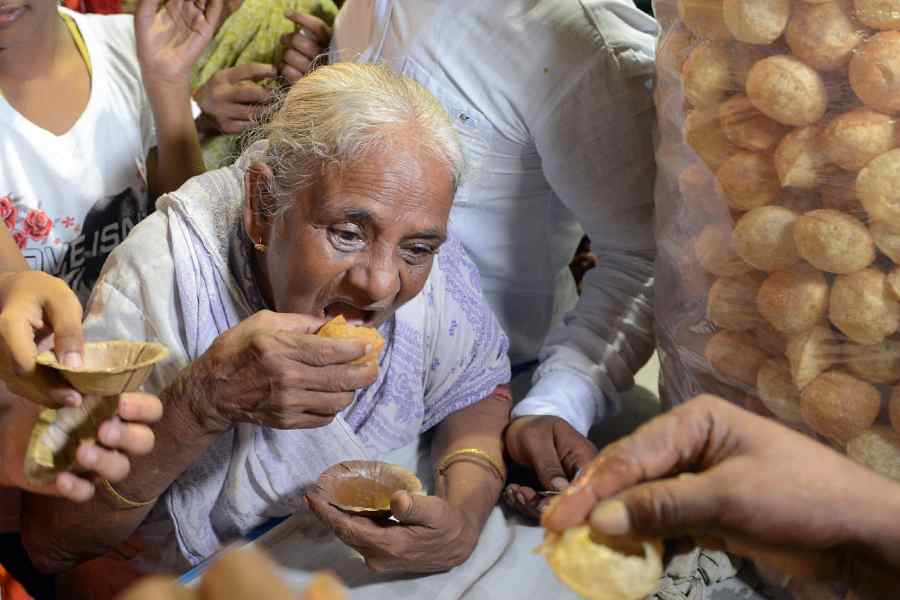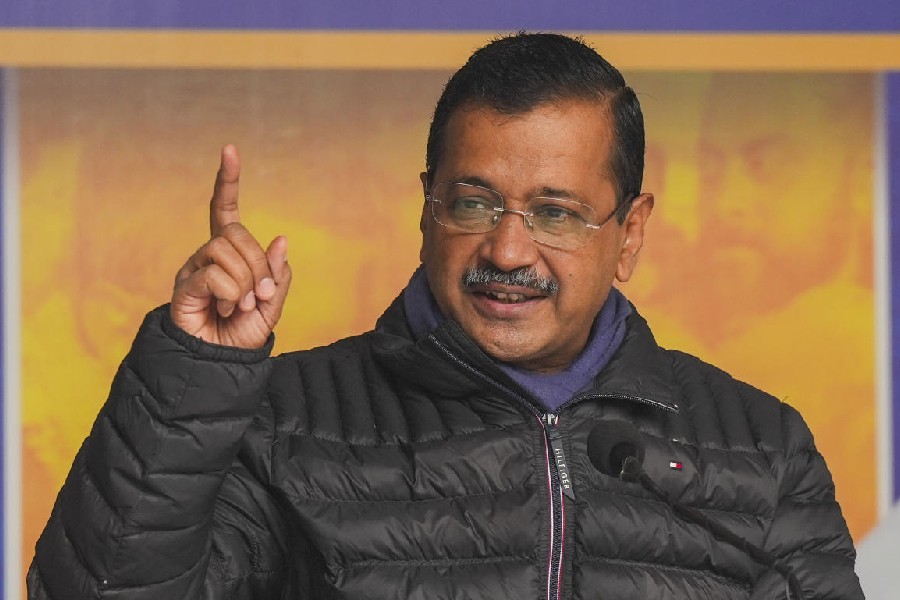Toxic treats
Sir — Of all the enviable jobs, raiding phuchka stalls might just take the cake. A team of officials raided over 50 stalls in Chennai to determine whether carcinogenic ingredients were being used in the phuchkas. The team has lifted samples of masala and sauce from several outlets and sent them for testing, noting the widespread prevalence of unhygienic practices. But such threats are probably lost on phuchka-lovers. Can any risk deter the lovers of this tangy treat who have braved the danger of a slew of water-borne diseases that phuchkas have been associated with for ages?
Snigdha Sinha, Calcutta
Dubious step
Sir — The implementation of the three new criminal laws — the Bharatiya Nyaya Sanhita, which replaced the Indian Penal Code, the Bharatiya Nagarik Suraksha Sanhita, which replaced the Code of Criminal Procedure, and the Bharatiya Sakshya Adhiniyam, which replaced the Indian Evidence Act — marks a significant step forward in revamping the country’s criminal justice system (“Peril within”, July 2). The laws have introduced community service as an alternative form of punishment, made summary trials mandatory for petty offences, allowed people to register complaints online, and prescribed timelines for speedy trials.
However, the government must be held accountable for passing the three criminal laws in Parliament through voice vote when many Opposition members were suspended. It is time that the National Democratic Alliance government addresses these concerns. Moreover, reform should not be a one-time thing. Regular police reforms and sensitisation, and plugging the loopholes in the judicial infrastructure should continue.
M. Jeyaram, Sholavandan, Tamil Nadu
Sir — It is important to note that the Bharatiya Janata Party government was under no pressure to pass the new criminal laws and did so voluntarily. There is, thus, a looming fear that the provisions of the new laws will favour the Centre and empower the police further. Curiously, despite there being strong demands for police reforms from all quarters, these are yet to be undertaken.
S.S. Paul, Nadia
Sir — It was unfair to carry out such an enormous upheaval of the justice system in India in the absence of several Opposition leaders from Parliament. The implementation of the new laws will burden our judiciary further and fuel confusion. A petition has been filed in the Supreme Court demanding an expert committee to investigate and prepare a detailed report regarding the feasibility of this huge change.
Issues like cybercrime have not been adequately addressed through legal provisions. The police have been given a significant amount of power with very few democratic checks against its misuse. The Supreme Court should take cognisance of the matter.
Jang Bahadur Singh, Jamshedpur
Sir — The Hindi names assigned to the new criminal laws have invited criticisms from non-Hindi-speaking states. However, the provision for filing a report in any police station regardless of its jurisdiction is a welcome development. While it is up to the police and the judiciary to see to the implementation of the laws, the Opposition must understand that the BNS is capable of ushering peace and safety in the country.
M.C. Vijay Shankar, Chennai
Sir — The Congress president, Mallikarjun Kharge, claimed that the three new criminal laws were passed “forcibly” after suspending 146 members of Parliament and warned that the INDIA bloc will not allow such “bulldozer justice” to prevail. The Union home minister, Amit Shah, said that the new laws would give priority to providing justice. However, a hasty implementation of these laws must be stalled and Parliament should re-examine the BNS.
Bhagwan Thadani, Mumbai
Sir — The Centre has claimed that the new laws are victim-centric and, unlike colonial-era laws, focus on delivering justice instead of handing out punishment. While the stern punishments for rape and mob lynching are heartening, the draconian provisions regarding police power can make citizens susceptible to abuse by the law enforcement system.
It is also important to strengthen the infrastructure and increase the manpower of the law enforcement and the judiciary to implement the laws properly.
D.V.G. Sankara Rao, Andhra Pradesh
Sir — It is deplorable that crucial laws were passed without holding any substantial debate with the Opposition in Parliament. Debates would have increased the ambit and made the laws unbiased and practical.
Fateh Najamuddin, Lucknow
Sir — The three new criminal laws brought an end to colonial-era legislations and will deliver speedy justice. The previous legal structure was plagued by substandard investigations, high pendency, low conviction rates and delays in the disposal of cases.
Dimple Wadhawan, Kanpur











